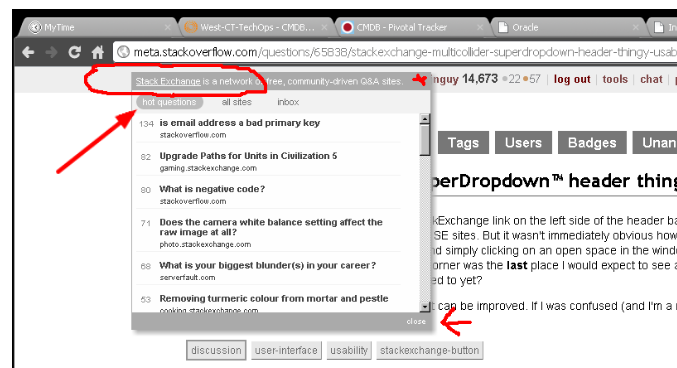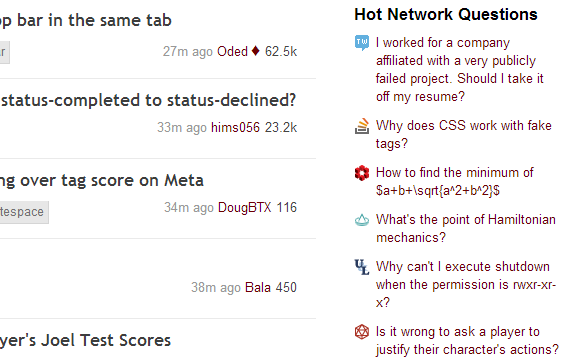This was a point raised in a micro-study performed by ArtOfCode, but is even more relevant now because of the recent removal of an entire site from Hot Network Questions for...known reasons.
To quote a part of the study results (emphasis mine):
Hot Network Questions - what?
HNQ was one of the most confusing features mentioned. On a page full of questions about gardening, looking at the sidebar and seeing questions about Star Wars and Windows 10 next to each other confused my test group. Some sample reactions:
Aren't those questions off topic here?
What's the network?
What's Hot?
Why are these questions here with the gardening questions?
From what I can tell, this played a rather large part in provoking the original tweet that resulted in the site's removal: a visitor saw links to questions about personal relationships on a site that was supposedly focused only on programming.
When I began my first foray into teaching older, middle- and high-school kids, the first course offered at my university for students in that particular track involved teaching kids as young as first grade. The reason they did so was that you can't assume that those older children have the same level of general knowledge as yourself: the fact that you start off teaching kids who are totally new to reading, math, or science helps demonstrate that perfectly.
Similarly, you can't assume that someone who isn't familiar with Stack Exchange shares the same background knowledge, or is aware that the term "network" refers to the overall Stack Exchange network of Q&A sites (or in the case of readers of Stack Overflow or other sites not hosted on a stackexchange.com domain, know that that site is a part of it).
For this reason, I propose that the title of "Hot Network Questions" be changed to something that makes it clear to users unfamiliar with the SE network, such as "Hot on the Stack Exchange Network", "From the Stack Exchange Network", or per Monica Cellio's suggestion, "From our other sites". Either one of these titles would directly address the middle two issues mentioned earlier, and a user who looks just a little further will probably get their answer to the first and last issues.


